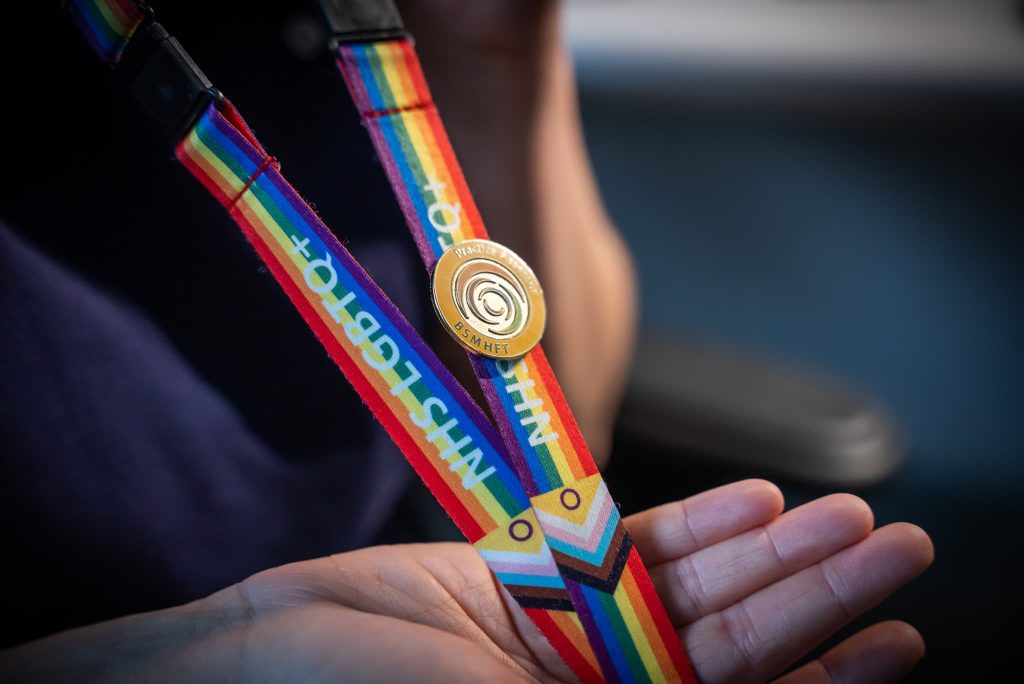BSMHFT is committed to building a workforce which is valued and whose diversity reflects the communities it serves, enabling it to deliver the best possible mental health services to its service users and communities. The Trust will support its employees through their employment journey and make reasonable adjustments where possible enabling staff to feel valued and safe.
The Trust Values are Inclusive, Compassionate and Committed and will ensure this is evidenced throughout all areas
A workplace which encourages equality, diversity and inclusion can help:
- Ensure employees can be themselves
- Prevent bullying, harassment and discrimination
- Better serve a diverse range of service users and their families
- improve ideas and problem-solving
- attract and keep talented staff
Equality
Equality in the workplace means equal job opportunities and fairness for employees and job applicants.
You must not treat people unfairly because of reasons protected by discrimination law (‘protected characteristics’). For example, because of a person’s sex, age or race.
Diversity
Diversity is the range of people in your workforce. For example, this might mean people with different ages, religions, ethnicities, people with disabilities, and people of all genders. It also means valuing those differences and ensuring that the environment is safe and inclusive so that people can be authentically themselves.
To avoid bullying, harassment, or discrimination, you should make sure:
- your workforce and managers understand what identifiers are protected by discrimination law
- what’s expected under discrimination law is actually happening in your workplace
- you make changes if what’s expected is not happening, for example stepping up staff training
- your workforce and managers understand what the benefits are of having a range of people with different backgrounds
Inclusion
Inclusion is the extent to which people in the workforce feel valued, respected, represented and understood. An inclusive workplace does not only aim to diversify its workforce, it aims to embrace the individuals who are within it; creating and sustaining practices and policies which support them to be who they are. An inclusive workplace also has a zero-tolerance approach of discrimination and any behaviour which marginalises or oppresses people based on their identity.
An inclusive workforce is better able to:
- come up with a wider range of ideas because there are varying experiences and fields of references contributing.
- raise issues and suggestions to managers, knowing this is encouraged
- try doing things differently to how they’ve been done before.
- Foster a new culture.
What is the difference between Equality, Diversity and Equity?
What is the difference between Equality, Diversity and Equity?
These two terms are sometimes used interchangeably, however, the terms ‘equality’, ‘equity’ and ‘diversity’ are not the same.
Equity is about making sure everyone is treated fairly and given a chance to access opportunities. Equitable behaviour bridges the gaps between those who have access because of their identities privileges and those who do not have access because of the marginalised components of their identities (age, race, gender). Equity considers that some people will have different needs to achieve the same outcomes.
Diversity means ‘difference’. When it is used in the same context as ‘equality’, it is about recognising and valuing individual as well as group differences. It also means treating people as individuals and placing positive value on the diversity they bring as a result of them belonging to a certain personal protected characteristic or their cultural background.
For further information or support either for yourself or your team – please contact the EDI Team: bsmhft.edi.queries@nhs.net
Jaskiern Jaur – Associate Director of Equality, Diversity and Inclusion and Organisational Development
Lynn Phung – Senior Equality, Diversity and Inclusion Lead
Manisha Panesar – Senior Equality, Diversity and Inclusion Lead
Zahra Hussain – Learning and Organisational Development Business Support Officer
Bethany Gallagher – Equality, Diversity and Inclusion and Staff Network Coordinator



